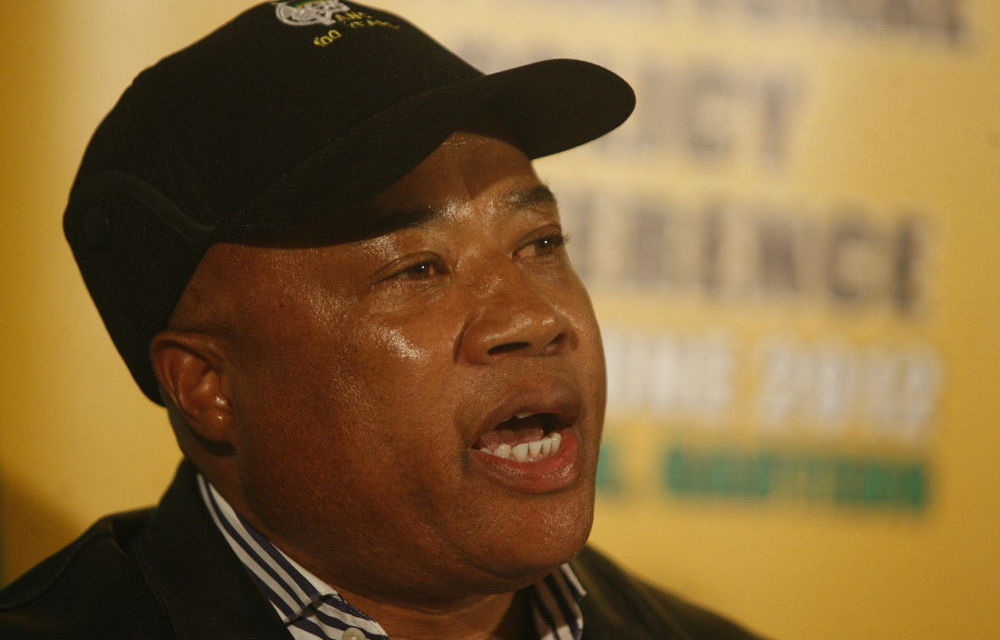The Ibrahim index found South Africa’s governance structures since 2014 had deteriorated. (Bloomberg via Getty Images)
South Africa ranked fourth in 2023 for overall governance on the African continent, with Seychelles being the best-performing and most improved country, according to the 2024 Ibrahim Index of African Governance (IIAG) report.
The index, released on Wednesday, contains the latest iteration of the biennial dataset assessing governance performance and trends in the 54 African countries from 2014 to 2023.
Collected from 49 independent sources, with some data commissioned by the Mo Ibrahim Foundation, the report is based on 322 variables clustered in 96 indicators that were organised under 16 sub-categories and four main categories: security and rule of law; participation, rights and inclusion; foundations for economic opportunity; and human development.
For 13 countries — Republic of the Congo, Côte d’Ivoire, Egypt, Equatorial Guinea, Eritrea, Gabon, Libya, Madagascar, Malawi, Morocco, Somalia, Togo, and Zambia — which have about 20.5% of the continent’s population, there had been progress over the decade, with the pace accelerating since 2019.
But for 11 countries — Botswana, Burkina Faso, eSwatini, Guinea, Mauritius, Mozambique, Nigeria, Senegal, Sudan, Tunisia and Uganda — home to almost 29.3% of the population, there has been deterioration in governance since 2014.
The report cautioned that the pace of governance had worsened over the second part of the decade.
Regarding South Africa’s governance structures since 2014, the report found a trend of slowing deterioration since 2014.
“At the overall governance level, South Africa ranks fourth in 2023, scoring slightly lower than in 2014, following a trend of slowing deterioration since 2014,” reads the report without stating the reasons behind the deterioration.
South Africa ranked 10th for infrastructure in 2023, but registered the biggest decline of the whole continent in this subcategory, losing -2.1 points since 2014.
Despite considerable improvements in the indicators of internet and computers, mobile communications and access to energy, public perception of infrastructure has dropped at a much faster rate of -34.9.
South Africa and The Gambia are the only two countries that have a decline in infrastructure development.
But South Africa and Mauritius remain the two top-performing countries in the business and labour environment in Africa, with Rwanda slowly catching up. In all three countries, economic diversification and business and competition regulation are among
the highest performing indicators, scoring 73.4 and 94.5 respectively.
Regarding anti-corruption, Angola improved by +17.9 while other higher-scoring countries registered large declines: Botswana (-15.8), South Africa (-11.2) and Mauritius (-5.0).
The index reports recent improvements in health and education outcomes, which it said “reflect increased investment in these sectors across Africa”.
Countries such as Namibia, Botswana, South Africa, Cabo Verde, and Lesotho have each allocated more than 10% of their GDP to health and education.
“This level of commitment is essential for progress, yet significant challenges persist, particularly in bridging the financing gap,” said the report.
According to the United Nations Educational, Scientific and Cultural Organisation estimates, in 2021, the total spending on education in Africa rose by 2%, primarily driven by government contributions, which account for 69% of the total.
But governments in Africa spent an average of 3.7% of GDP on education — still below the recommended 4%.
The 10 highest-scoring countries follow diverging courses, with Morocco being the only country managing to accelerate improvement over the decade, while Mauritius, Botswana and Tunisia are on a concerning trend of worsening deterioration.
“The 2024 IIAG is a sobering reminder of the threat that a deepening security crisis and shrinking participatory environment poses to the continent’s progress,” said founder and chair of the foundation, Mo Ibrahim.
He emphasised that the three most deteriorated indicators from 2014 to 2023 relate to public perceptions — of economic opportunities, security and safety, and social protection and lived poverty.
The index noted that weak data has hindered the measurements in key sub-categories such as education and rural economy.
The report cautioned that key governance data gaps remain regarding the informal economy, health structures and capacities, child labour, illicit financial flows, the prevalence of discrimination and hate crimes, disability and recycling and waste management.



















Discussion about this post